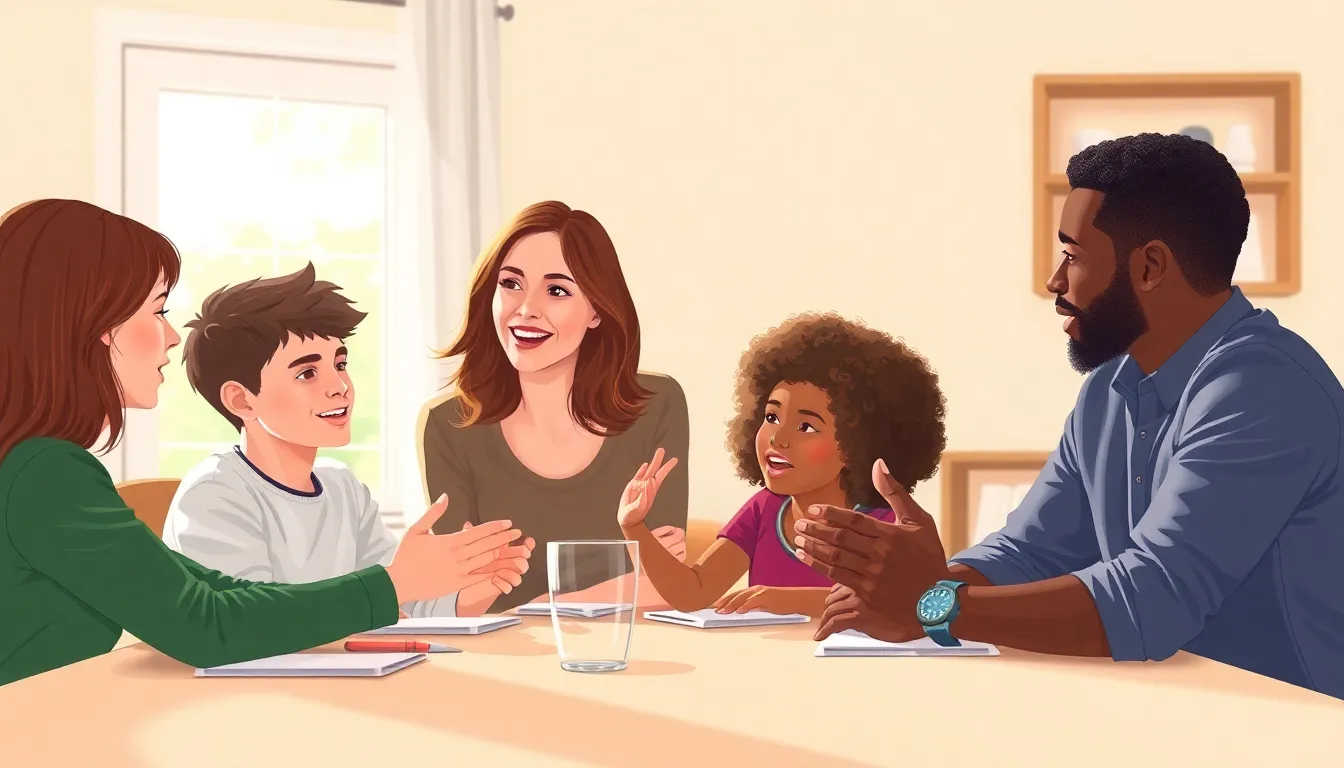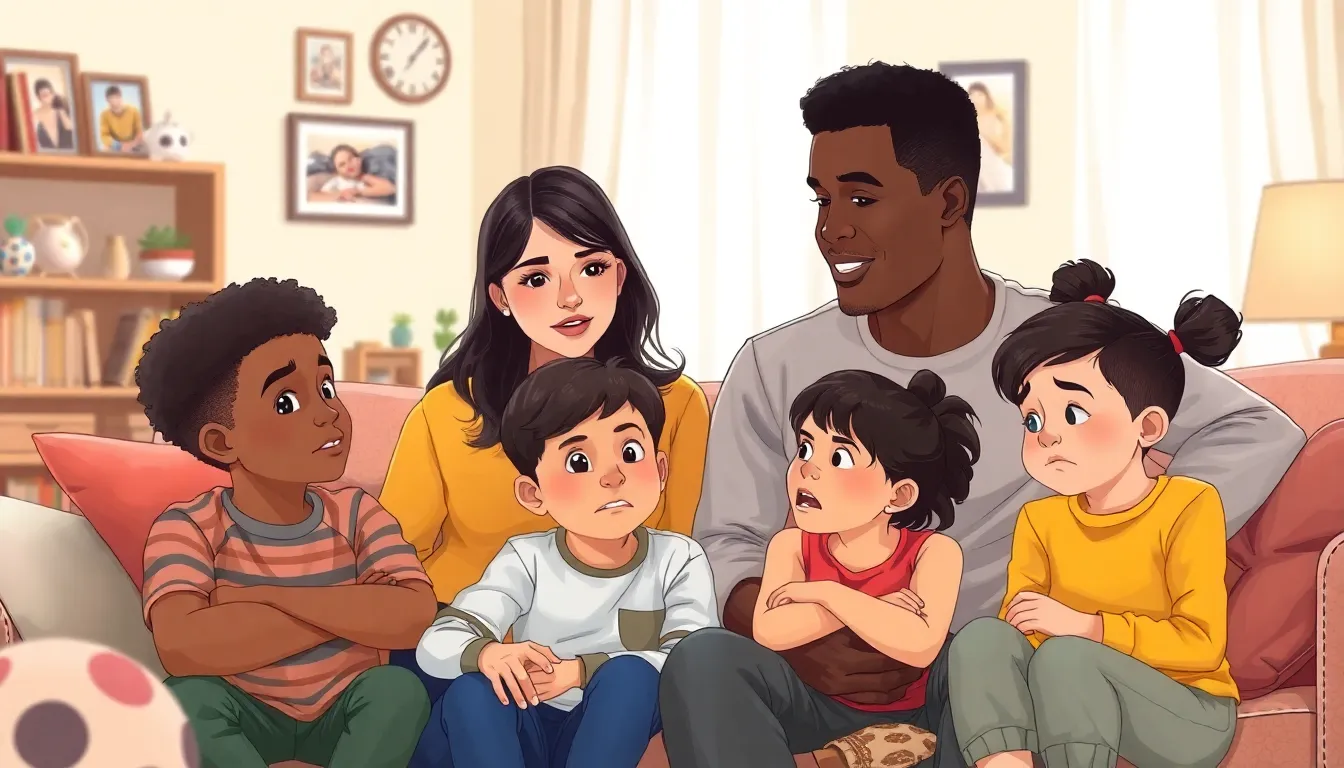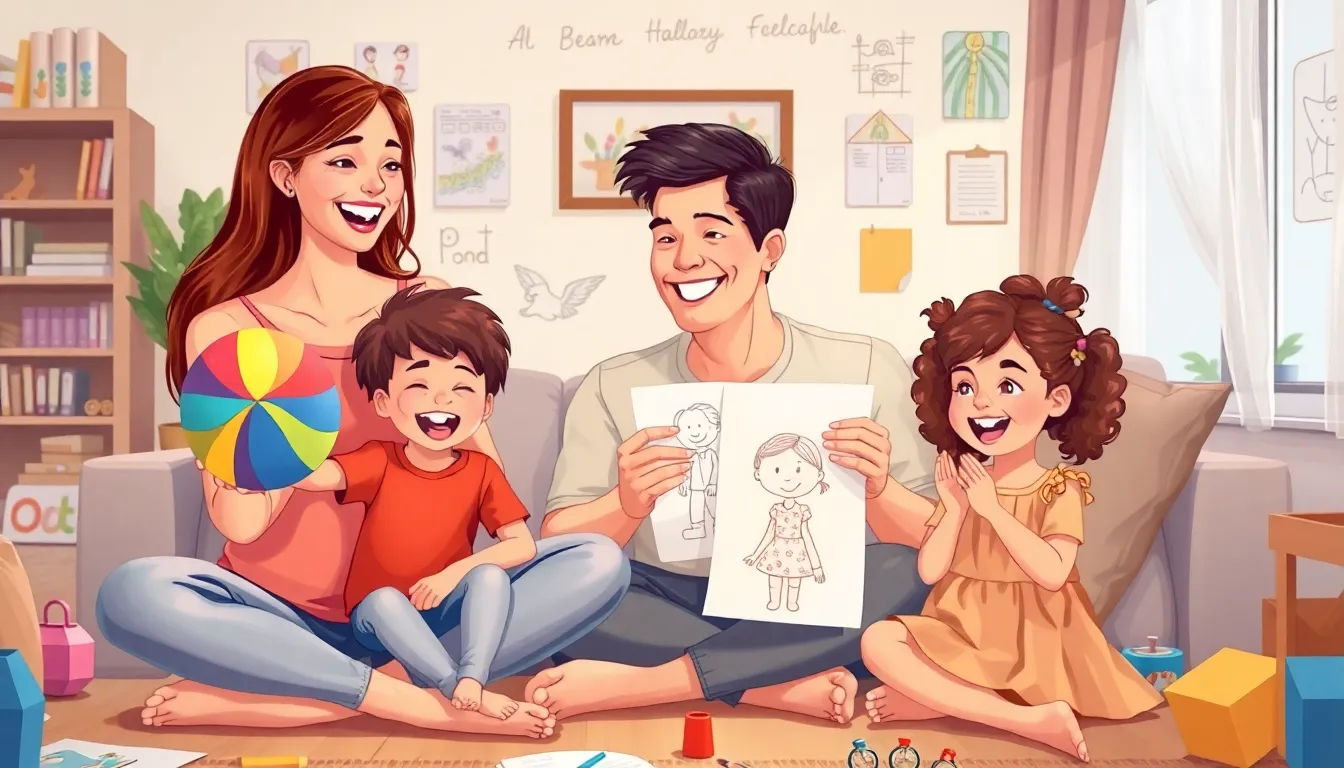Navigating family relationships can feel like herding cats, but throw ADHD into the mix, and it’s like trying to herd caffeinated squirrels. ADHD affects not just the individual but ripples through family dynamics, creating a unique blend of chaos and love. Families often find themselves on a rollercoaster of emotions, where understanding and patience become the ultimate life skills.
adhd and family relationships
ADHD affects family dynamics in significant ways. It involves persistent patterns of inattention and hyperactivity that can disrupt relationships.
What Is ADHD?
ADHD is a neurodevelopmental disorder affecting children and often continuing into adulthood. This condition features challenges with focus, impulse control, and organizational skills. Names like attention deficit hyperactivity disorder highlight its core characteristics. Professionals diagnose ADHD through behavioral assessments and questionnaires. Statistics indicate that around 5% of children and 2.5% of adults in the U.S. live with ADHD.
Common Signs and Symptoms
Signs and symptoms manifest differently in each person. Inattention often appears as forgetfulness in daily activities or difficulty following instructions. Hyperactivity might show up as excessive fidgeting or difficulty remaining seated. Impulsivity can lead to interrupting others or acting without thinking. Many individuals may experience challenges in managing time and maintaining focus, resulting in disruptions in family life. Recognizing these symptoms supports families in navigating ADHD more effectively.
Impact of ADHD on Family Dynamics

ADHD significantly alters family relationships, creating unique challenges. Understanding these impacts fosters healthier dynamics within the household.
Communication Challenges
Families often face communication difficulties with ADHD. Impulsivity affects how individuals respond in conversations, leading to interruptions. Attention deficits cause forgetfulness, making it hard to follow discussions. Parents may struggle to convey expectations clearly, resulting in misunderstandings. Siblings might feel frustrated by the lack of attention or focus during interactions. These obstacles hinder effective dialogue, making it essential for families to develop strategies that promote open conversations.
Emotional Reactions
Emotional responses contribute to the complexity of family dynamics. Frustration and anxiety frequently arise when ADHD symptoms manifest. Parents may experience feelings of helplessness due to their child’s impulsive behaviors. Similarly, siblings can feel isolated or overlooked, intensifying emotions within the family. Recognizing these reactions is vital for maintaining emotional health. Families benefit from creating supportive environments where everyone feels valued. Encouraging emotional awareness fosters resilience and strengthens family bonds, aiding in navigating ADHD challenges.
Strategies for Improving Family Relationships

Improving family relationships when ADHD is present requires intentional strategies. Focus on understanding and support to foster healthier interactions.
Building Awareness and Understanding
Educational resources serve as tools to build awareness about ADHD. Family members can learn about symptoms and their effects on daily life. Understanding impulsivity and inattention helps reduce frustration during conversations. Discussing these topics openly encourages empathy among family members. Parents can share experiences and strategies that work, creating a collective knowledge base. Siblings benefit from knowing ADHD isn’t a personal issue but a shared family challenge. Regular family meetings allow open dialogue about feelings and frustrations, nurturing a sense of shared responsibility and understanding.
Creating a Supportive Environment
A supportive environment enhances family relationships affected by ADHD. Establishing routines helps manage expectations and reduces chaos. Designating quiet spaces for focus can provide relief from distractions. Reinforcement through praise and encouragement boosts self-esteem and motivation. Allowing individual family members to express their needs fosters emotional connection. Encouraging physical activity also aids in reducing hyperactivity while promoting teamwork. Utilizing tools like charts or reminders assists in managing daily tasks, keeping everyone engaged and informed. Creating a culture of patience cultivates resilience in facing challenges related to ADHD.
Seeking Professional Help
Seeking professional guidance significantly impacts family relationships affected by ADHD. It fosters understanding and effective communication among family members.
Counseling Options
Counseling offers families tailored strategies for managing ADHD-related challenges. Individual therapy sessions benefit both parents and children by providing coping mechanisms. Family therapy encourages collective problem-solving and improves communication skills, enhancing overall connection. Psychologists knowledgeable about ADHD can teach families how to implement effective strategies. They provide insights that help address specific issues, creating a more supportive environment at home.
Support Groups
Support groups create a space for families to share experiences and find solidarity. Connecting with others navigating similar situations fosters understanding and encourages shared coping strategies. Participants gain access to resources that promote emotional well-being and practical advice. Some support groups focus primarily on siblings, offering them a platform to express their emotions and frustrations. Additionally, these groups can help reduce feelings of isolation, reinforcing that families are not alone in their journey.
Conclusion
Navigating family relationships affected by ADHD requires patience understanding and intentional strategies. By fostering open communication and creating supportive environments families can strengthen their bonds and enhance emotional awareness. Professional guidance and community support play crucial roles in managing challenges and improving interactions. With the right tools and resources families can transform chaos into connection nurturing healthier relationships. Embracing these strategies not only benefits those with ADHD but enriches the entire family dynamic.




